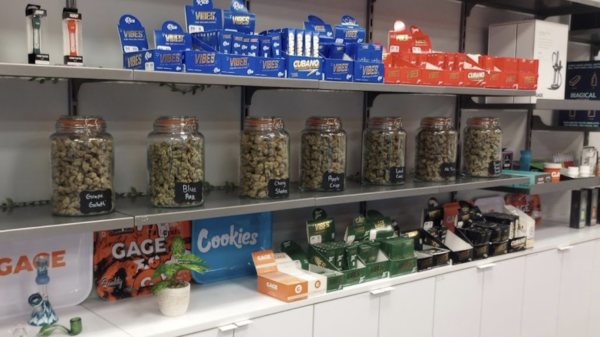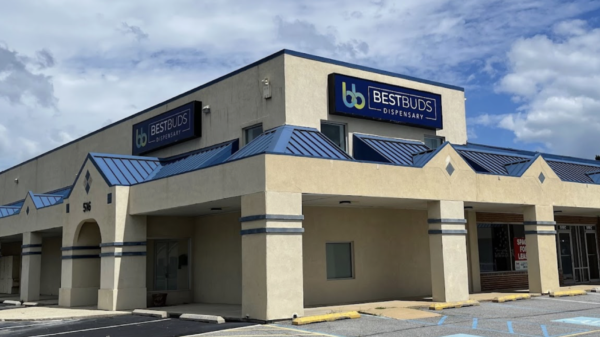For the first time in history, the U.S. House of Representatives passed a standalone cannabis reform bill, but the Secure and Fair Enforcement (SAFE) Banking Act still has an uphill battle getting passed in the Republican-led Senate.
The cannabis banking bill, which would protect banks and allow them to service pot businesses without being punished by federal regulators, passed through the lower chamber Wednesday in a vote of 321-103.
The bill was scheduled for a floor vote by the end of the month and required two-thirds of Congress (290) to approve it for passage as it was held under a process known as the suspension of the rules. All Democrats, except one voted in favour of the bill. Republican support was mixed, with 91 voting in favour of the legislation and 102 opposing it.
Democrat Rep. Ed Perlmutter of Oregon, who sponsored the SAFE Banking Act, called the passage of the bill “historic” as it will increase safety in states where cannabis is legal.
“This is our blueprint for legalization in action. Our movement is cresting & we won’t stop here. Onward!”
— Rep. Ed Perlmutter (D-OR)
As marijuana businesses operate almost on a cash-only basis, Perlmutter said the bill would make American communities safer by taking cash off the streets while providing companies, employees and financial institutions some certainty on the issue.
Passing the #SAFEBankingAct will show that Congress can work together in a bipartisan way to address outdated marijuana laws. I hope this bill is an icebreaker for the House to take up other reforms and finally remove the conflict between state and federal laws. #copolitics pic.twitter.com/0rBWvQUJGh
— Ed Perlmutter (@RepPerlmutter) September 25, 2019
Cannabis banking bill faces uphill battle in Senate
The enthusiasm generated after the House passed the banking bill was short lived within the U.S. cannabis sector, as pot stocks dropped Thursday after analysts warned the Senate is unlikely to give the SAFE Banking Act a thumbs up.
Wall Street’s Height Securities gives the bill just 25 per cent odds of being approved by the Senate.
“Our work has indicated that cannabis is a topic that divides the Republican Senate caucus and Senate Majority Leader Mitch McConnell (R-KY) has focused on legislation that has had more unified Republican support,” Height Securities analysts wrote in a note.
The Senate Banking Committee, which would first need to hold a hearing on the bill to get consideration, has not tabled a single bill in almost 500 days, the firm also notes.
Congress’ SAFE Act was amended to include provisions that would support the hemp industry in an effort to lure McConnell, who is an avid supporter of marijuana’s non-intoxicating cousin. But the Republican has been consistently vocal in his opposition towards cannabis legalization.
Shares of market leader Canopy Growth (TSX:WEED; NYSE:CGC) dropped after MKM Partners said the passage of the cannabis banking bill won’t likely be enough to trigger the company’s acquisition of Acreage Holdings (CSE:ACRG). Canopy has to wait for U.S. cannabis law reform before it can exercise its right to acquire Acreage, but analyst Bill Kirk said the SAFE Act doesn’t meet those terms, according to MarketWatch.
“We think the biggest benefits would fall with the smaller operators rather than the better capitalized and resourced publicly traded companies in our coverage,” Kirk told investors. The analyst gives Canopy a neutral rating but gives Acreage a buy rating.
Alliance analysts agreed Congress’ Wednesday vote will likely help smaller players the most, and the Canopy-Acreage deal will need the U.S. federal government to completely lift the federal ban on cannabis to be approved.
“The biggest impact we believe could be if the SAFE Act opened up the use of credit cards at dispensaries/retail stores, which we believe would help to increase customer spend (though it is uncertain if the SAFE Act would open up broader credit card spending),” they wrote.
Conflict between state & federal law means legal, legitimate marijuana businesses are forced to operate on a cash-only basis, creating serious risks for employees, business owners, & communities. The #SAFEBankingAct will fix this problem and I'm proud to support it. pic.twitter.com/eYA6iNtXxB
— Rep. Betty McCollum (@BettyMcCollum04) September 25, 2019














